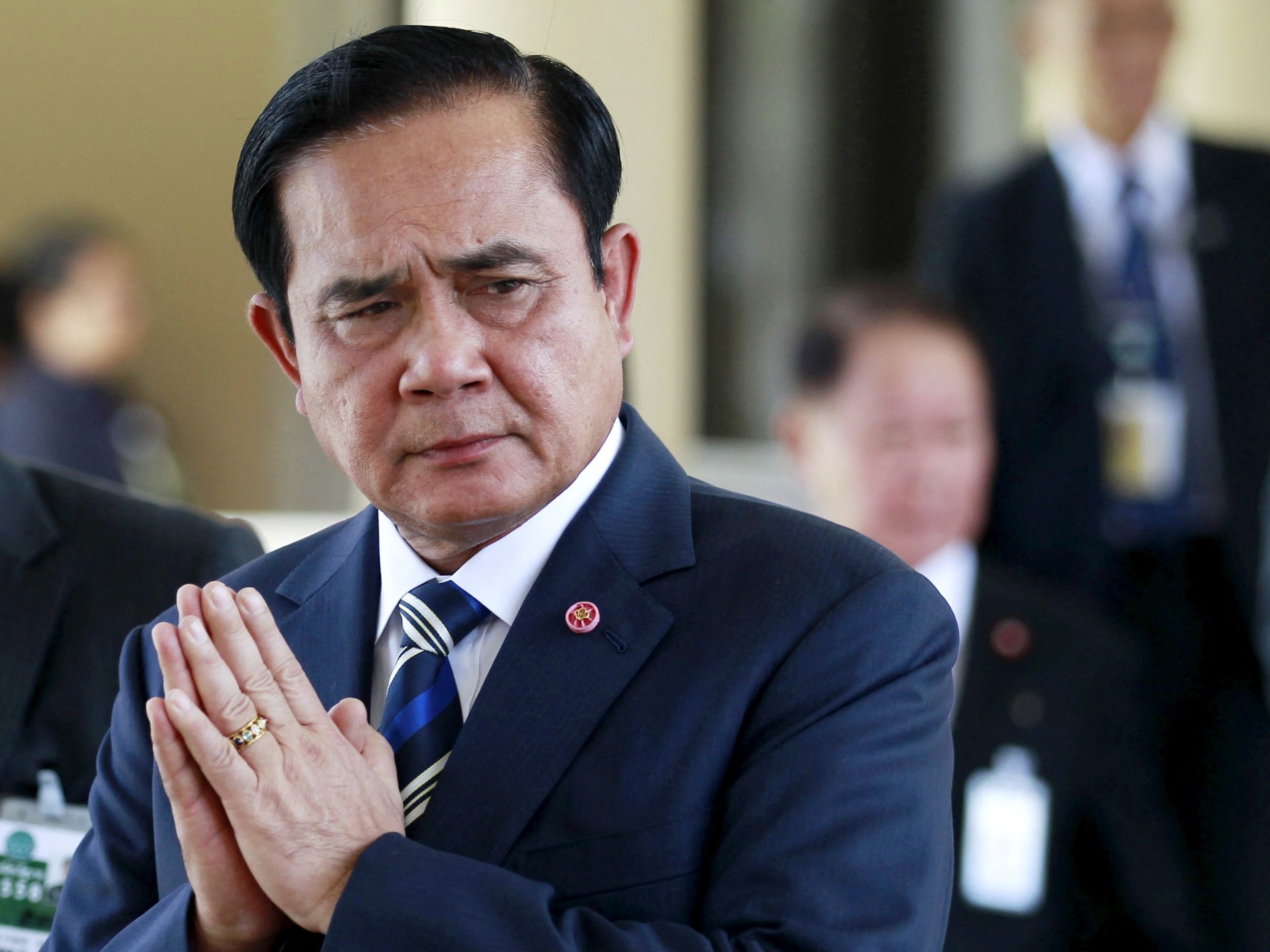Thai court to rule on Prime Minister Prayuth’s political future | News
Thailand’s Constitutional Court is scheduled to deliver a decision on the term limit of Prime Minister Prayuth Chan-ocha, a ruling that should decide on whether the former Thai army chief has surpassed his maximum eight years in office or not.
The court is expected to announce its decision on Friday at 3pm local time [08:00 GMT] as to whether Prayuth’s time in office should be counted as starting when he became head of a military administration on August 24, 2014, after launching a coup to remove Thailand’s elected Pheu Thai party government.
Prayuth’s critics cite the 2014 date and have argued that he is now obliged to resign as his eight years in office have expired.
Supporters of Prayuth maintain that his term as prime minister should be counted from when a military-drafted constitution containing the eight-year term limit was adopted in 2017 or when Prayuth took office after his election as a civilian prime minister in 2019.
In a surprise move, Prayuth was suspended as prime minister in August by the Constitutional Court, which had accepted a petition from Thailand’s political opposition calling for it to rule on whether the premier had exhausted his time in office.
The petition was signed by 171 members of Thailand’s House of Representatives, and the nine-member Constitutional Court responded by saying it had sufficient witnesses and evidence to proceed to a ruling.
Deputy Prime Minister Prawit Wongsuwan has served as Thailand’s caretaker premier since Prayuth’s suspension.
Prawit and Prayuth are both former army commanders and were comrades in arms for decades. Prawit is widely expected to become prime minister if the court rules against Prayuth.
Mark Cogan, associate professor of Peace and Conflict Studies at Kansai Gaidai University in Japan, said a likely scenario is that the court rules that Prayuth’s term started with the new constitution in 2017.
“That’s probably the most likely solution,” Cogan said, adding that such an outcome would inflict “the least damage politically” and allows for “a smooth transition” for Prayuth.
If, on the other hand, the court rules that his term started in 2019, which means that Prayuth could stay in office until 2027, that would “make a lot of people unhappy”, Cogan told Al Jazeera.
Boiling point
Courts in Thailand, like the military, are a key element of the nation’s ruling elite and have consistently turned back challenges that might up-end Thailand’s established political and social order.
Joshua Kurlantzick, senior fellow for Southeast Asia at the Council on Foreign Relations, says that Prayuth has been a “highly ineffective prime minister,” and Thais are furious that he wants to continue in power.
“With the courts in Thailand still incredibly loyal to the military and its allies, it’s certainly possible that a judge will rule that Prayuth’s clock should be reset to start 2019, allowing him to run for prime minister again next year,” Kurlantzick wrote recently.
“As a result of Prayuth’s continued autocratic rule, as well as generally poor policy management, anger among the political opposition in Thailand is at a boil,” he says.
Kurlantzick told Al Jazeera that if the court decided upon the 2014 start date – which would mean that Prayuth leave office – it would lead to less turmoil as it would demonstrate “a modicum of independence by the court, which would be unusual, given that it usually defers to the military”.
“If any later date is announced, I think it will spark significant turmoil, and Thailand is already a tinderbox,” he said.
Even deciding on 2017 as the start of Prayuth’s term would likely not placate the political opposition or avert protests, Kurlantzick added.
Criticism of Prayuth
Though suspended from his role as premier, Prayuth has remained in Cabinet as Thailand’s defence minister.
Making his first public outing in late August after his suspension as premier, Prayuth visited a security and defence exhibition where he was photographed inspecting assault rifles.
He declined to answer questions about his suspension by the court.
Controversy over the length of Prayuth’s time in office is the latest episode in nearly two decades of intermittent political turmoil in Thailand, including coups and violent protests, stemming from opposition to military involvement in politics, and demands for greater representation as political awareness grows.
If the court decides that Prayuth has reached his term limit of eight years, it will mark the end of one of Thailand’s longest-serving prime ministers and will come just months ahead of a general election, which is scheduled for March next year.
However, Prayuth’s own political star had been waning even before his suspension. He had become the focus of large youth-led pro-democracy rallies that sprang up in Bangkok in 2020 and called for his resignation.
He had also come in for criticism over his apparent poor management of the Thai economy, the country’s poor response to the COVID-19 pandemic, and his own rise to power with the 2014 military coup, which critics say was illegitimate.



